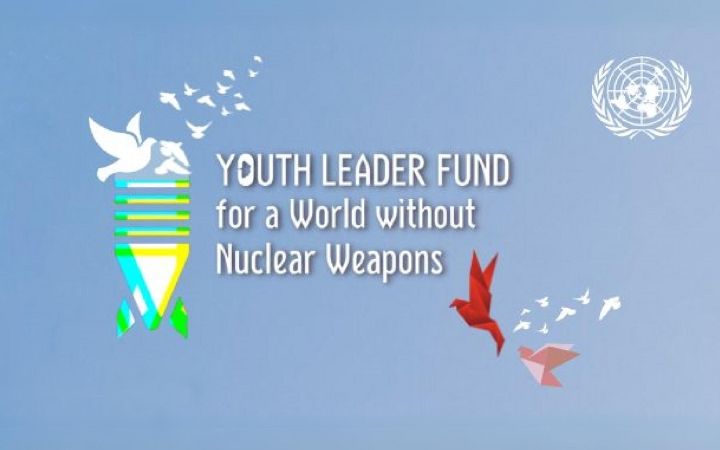100 participants selected from over 2,000 applications worldwide
18 December 2023, New York, USA – Today, the selected 100 young participants of the Youth Leader Fund for a World without Nuclear Weapons (YLF) convened for the first time.
The 100 youths from across the globe from over 60 countries, selected out of over 2,000 applicants from around the world, will spend the next year learning about nuclear disarmament and developing their skills to become changemakers for a world without nuclear weapons – the most destructive weapons on earth. As part of this innovative training programme, made possible by the generous support of the government of Japan and implemented by the United Nations Office for Disarmament Affairs, with support from the United Nations Institute for Training and Research, participants will combine interactive online learning, engagement with experts from the field, an immersive study tour to Japan, including participation in a youth-led conference, and other collaborative activities.
At today’s virtual congratulatory event and the kick-off of the programme, the future changemakers heard motivational messages from the Prime Minister of Japan Mr. Fumio Kishida, and the United Nations Secretary-General António Guterres.
Prime Minister Kishida, a native of the city of Hiroshima, has been a strong advocate for keeping alive the lessons of the atomic bombing of Hiroshima and Nagasaki – which wrought tremendous death, suffering and devastation. "No matter how difficult the path to a world without nuclear weapons may be, we should not stop our steps. Now is the time when we need the power of young people like you, the bearers of our future", he told the first-ever group of YLF participants.
In his message, the United Nations Secretary-General encouraged the participants to tap into their energy, innovative ideas, and creativity to help usher in a new era of a world free of nuclear weapons: "In the name of our common future — in the name of humanity — let’s spare no effort to rid the world of nuclear weapons, once and for all.”
In recent years, the Secretary-General has made a major push to empower youth, recognizing their role as the ultimate force for change and noting that they have proven their power in support of the cause of disarmament.
The participants also heard first-hand testimony from a hibakusha – a survivor of the atomic bombing of Nagasaki, Mr Seiichiro Mise, as well as a second-generation hibakusha, Mr. Toshiaki Nakagawa, and a fellow youth advocate, Ms. Miho Tanaka, who is dedicating herself to preserving hibakushas’ legacies. As the hibakusha continue to age, their powerful stories and appeals to eliminate nuclear weapons must be carried forward by future generations – which is why learning from and about their testimonies and pleas for action form key educational objectives of the programme.
The selected 100 participants, ages 18-29 years, come from 63 countries – both nuclear-weapon States and non-nuclear-weapon States, as well as from areas affected by previous nuclear testing – and bring diverse expertise, skills and know-how to their journey as nuclear disarmament advocates. Participants are active in non-governmental organizations, academia, government, international and regional organizations, the private sector, the military, and other fields. "May your participation in this unique programme fill you with pride, curiosity, a learning mindset, and most of all – with the desire to join forces to become a real source for positive change,” High Representative for Disarmament Affairs Izumi Nakamitsu told the participants as they now embark on this innovative new learning programme.
During this time, they will receive training in general principles of nuclear disarmament, non-proliferation, and arms control through online courses, with a selected cohort going on a week-long in-person study tour to Hiroshima and Nagasaki. The future leaders will also exchange ideas with disarmament experts from think tanks, civil society organizations, media, international organizations and the diplomatic field, and develop the practical know-how to engage and contribute to issues related to nuclear disarmament, non-proliferation, and arms control. Through education, skills training, peer-to-peer mentoring and networking, the hope is that participants will continue their disarmament and peace and security work in their field of interest and expertise after the programme.
This is the first YLF group to begin their training. Following the 2023 – 2024 inaugural training programme under the Youth Leader Fund, three more rounds of similar training will be conducted, generating a positive ripple effect, and consolidating a worldwide network of talented future leaders with the shared goal of saving humanity from nuclear weapons.
Contact: youthleaderfund@un.org.


